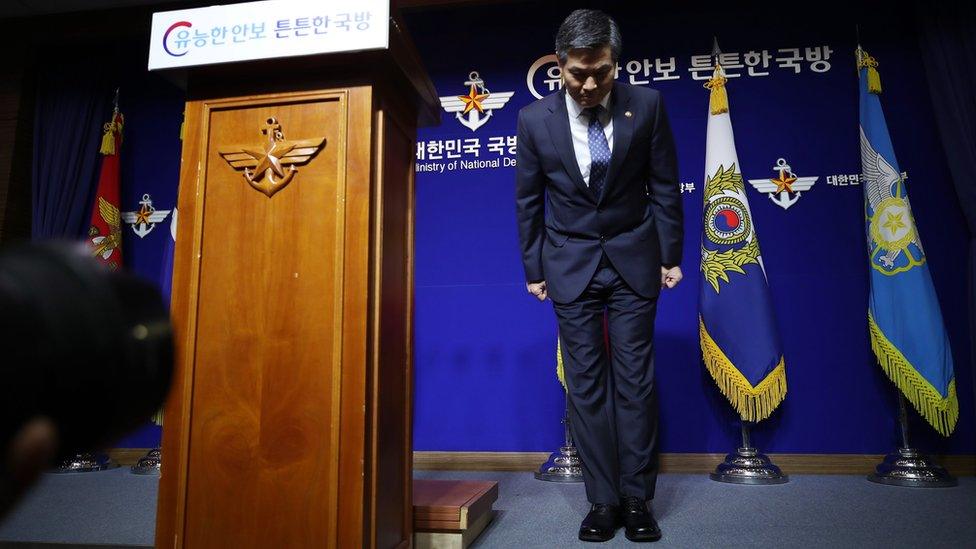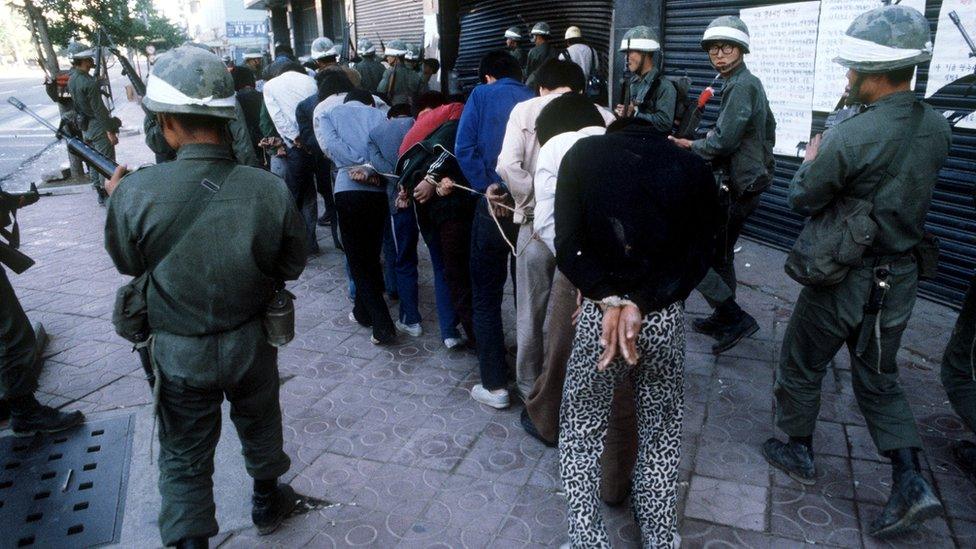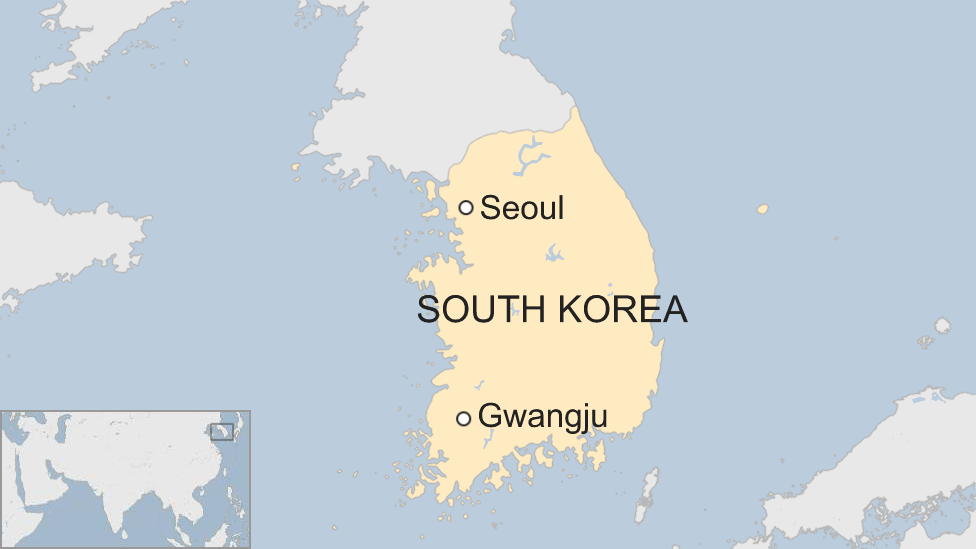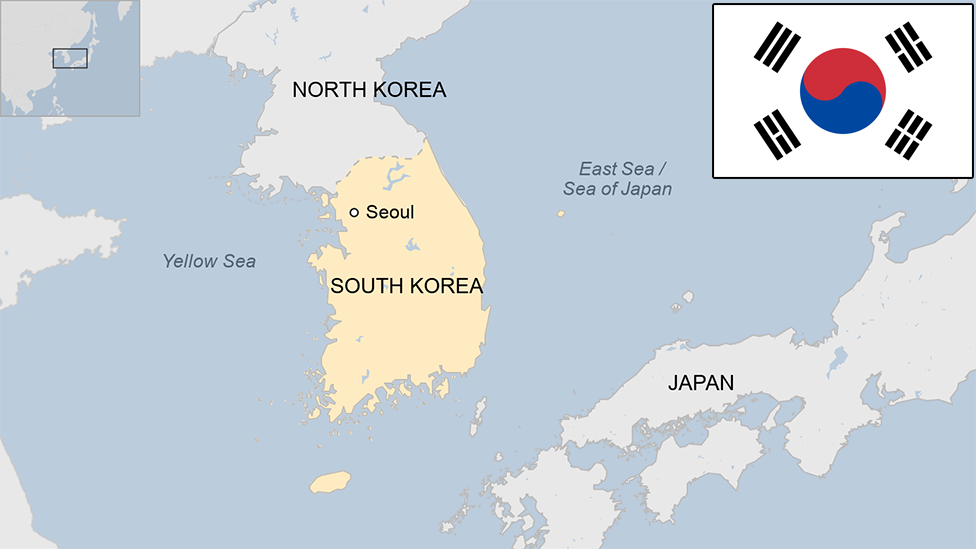South Korea apologises for rapes during 1980 Gwangju protest crackdown
- Published

South Korean Defence Minister, Jeong Kyeong-doo, bows his head to the nation
South Korea has apologised for the rape of women by troops sent to crush an anti-government protest 38 years ago.
The defence minister bowed as he described how soldiers inflicted "unspeakable pain" on innocent women in the city of Gwangju in 1980.
A recent government investigation confirmed 17 cases of sexual assault, including against teenagers and a pregnant woman.
But some victims said an apology was not enough.
Kim Sun-ok, who was raped, said "a million apologies" were worthless without the guilty troops being "duly punished".
The south-western city of Gwangju was the centre of an uprising against martial law in South Korea, imposed after a military coup in 1979 led by General Chun Doo-hwan.
A brutal military crackdown left more than 200 people dead or missing, according to official figures. Although widespread sexual assault has long been suspected, the issue has been kept out of the spotlight.
But South Korea's liberal President Moon Jae-in, who came to power in 2017, pledged to re-open a probe into the massacre in Gwangju.
After Ms Kim came forward in May alleging rape, a specific investigation into sexual assaults was ordered.

Protesters rounded up in Gwangju in 1980
Defence Minister Jeong Kyeong-doo said on Wednesday the investigation had confirmed troops committed rape, sexual assault and sexual torture.
"On behalf of the government and military, I bow deeply and offer my words of apology for the unspeakable, deep scars and pain inflicted on innocent victims," he said.
On Tuesday, Prime Minister Lee Nak-yon also apologised.
"Unjustly mobilised state power trampled on women's lives... I feel inexplicably terrible" he said.

What was the Gwangju Uprising?
In May 1980, after South Korea's military leaders declared martial law, pro-democracy protests began to grow across the country.
Gwangju, in the south-west, became a centre of demonstrations.
As security forces began to respond with brute force, the numbers of protesters swelled to their tens of thousands, with many ordinary citizens joining in.
Thousands of paratroopers were deployed to stem the tide. On the ninth day, troops opened fire on the protesters who had gathered at the Provincial Government Office.
It is alleged these troops carried out indiscriminate beatings, torture, sexual assaults and disembowelments.
On May 27, sanctioned by the United States, who jointly commanded the demilitarised zone between North and South Korea, about 20,000 troops were redeployed from the DMZ to take back Gwangju.
Officials statistics say about 200 people were killed but surviving eyewitness dispute the figures and say the true number is likely to be much higher.

- Published3 January
